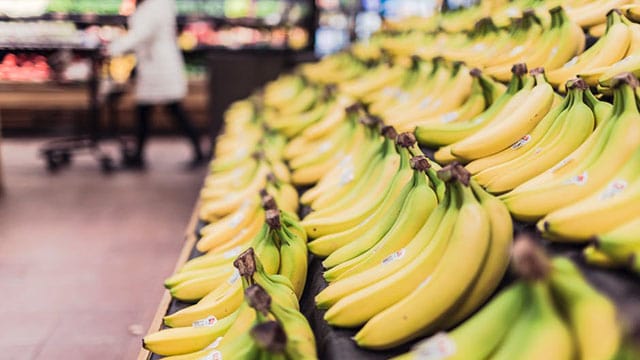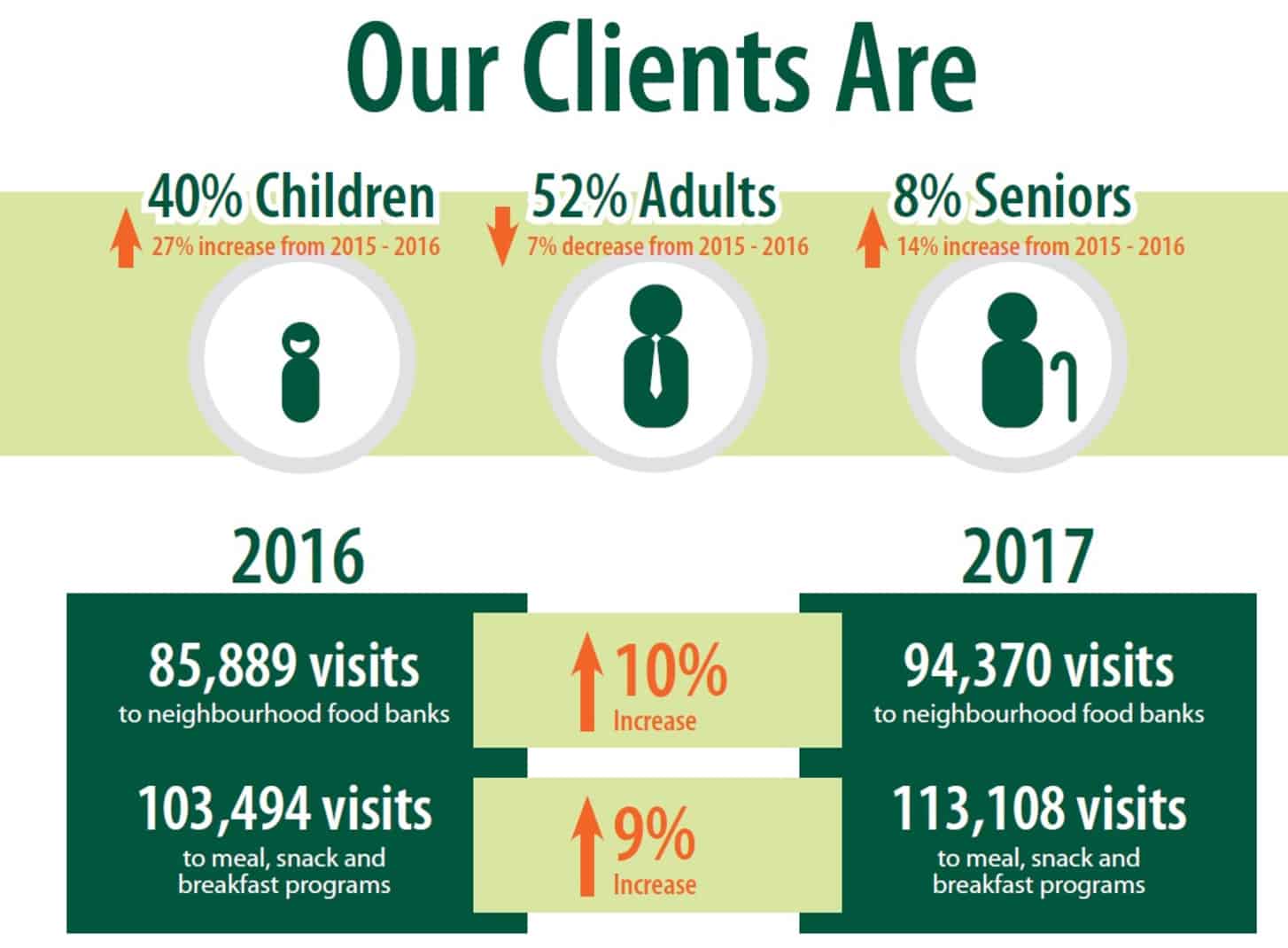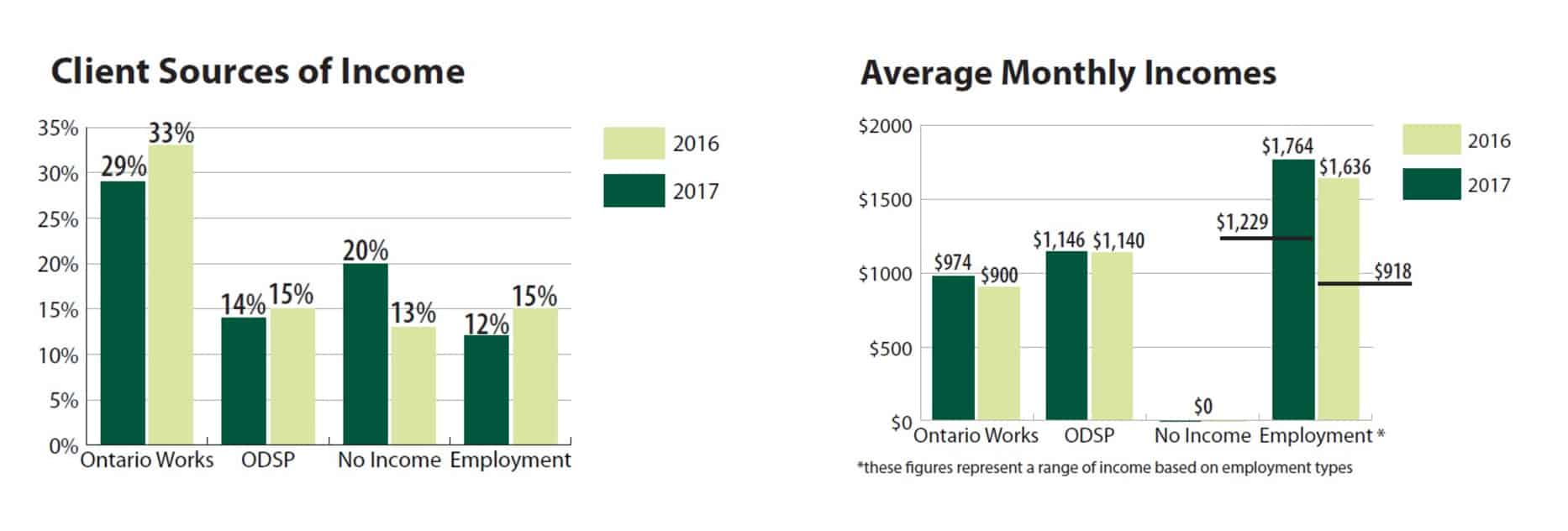A Shocking Amount of People Are Going Hungry in Mississauga
Published September 21, 2017 at 9:47 pm

While hunger is often thought to be a problem experienced by residents of far-off countries, it appears that a disturbing amount of people are going without proper sustenance right here in Mississauga.
Hunger QBN from insauga on Vimeo.
The Mississauga Food Bank recently kicked off its annual Thanksgiving campaign by releasing a saddening report on hunger in the city.
The Faces of Hunger report comes at a time when the Food Bank is reporting a 10 per cent increase in food bank use over the past year–an increase connected to a lack of adequate incomes in the city.
According to the Food Bank, this year’s report states that a staggering 20 per cent of food bank clients are not currently receiving any financial support from the government, family or employment.
The report also notes that this increase in ‘no income’ clients is paired with a 25 per cent decrease in clients whose primary income is employment, suggesting that job security is a growing and stressful concern for food bank clients.
“There is a hungry member of our community behind every statistic,” says Chris Hatch, executive director of The Mississauga Food Bank. “The Face of Hunger report demonstrates that families in our community simply cannot pay for their basic needs because they are not earning enough to cover their costs. With a 10 per cent increase in the number of visits to neighbourhood food banks, our community needs support more than ever. The Thanksgiving Campaign is especially important this year.”
The numbers in the report are troubling.
 The Food Bank says 40 per cent of its client base is comprised of children (that’s a 27 per cent increase from 2015/16). Adults currently make up 52 per cent of clients (a seven per cent decrease), while seniors account for eight per cent (a 14 per cent increase).
The Food Bank says 40 per cent of its client base is comprised of children (that’s a 27 per cent increase from 2015/16). Adults currently make up 52 per cent of clients (a seven per cent decrease), while seniors account for eight per cent (a 14 per cent increase).
In 2017, 94,370 residents have used the Food Bank’s services–up from 85,889 visits in 2016. The organization says that 43 per cent of clients were first time visitors.
As for what’s driving the change, the report indicates that inadequate wages are compelling people to seek help.
“As the cost of living increases, so does the need for emergency food in Mississauga,” the report reads. “The sixth largest city in Canada, Mississauga is home to over 721,599 people. Despite being a centre of industry and employment, the cold hand of poverty continues to grip many neighbours in the community. Over the last year, The Mississauga Food Bank recorded over 207,000 visits to its programs – approximately 18,000 more visits than in 2016. This increase in volume can be linked to the primary challenge that continues to plague food bank clients year over year – inadequate income. And as the cost of housing, food, and utilities continue to rise, those struggling with hunger will find it even more difficult to cover basic living necessities.”
The report reveals that, when asked their primary reason for visiting the food bank, 31 per cent of clients said low income/part-time hours were to blame.
 The report says that while the average income of a Mississauga food bank client is approximately $1,414 a month, many clients report incomes below that threshold. The report says 42 per cent of clients rely on social assistance as their primary source of income, receiving an average of $974/month from Ontario Works (OW) or $1,146/month from the Ontario Disability Support Program (ODSP).
The report says that while the average income of a Mississauga food bank client is approximately $1,414 a month, many clients report incomes below that threshold. The report says 42 per cent of clients rely on social assistance as their primary source of income, receiving an average of $974/month from Ontario Works (OW) or $1,146/month from the Ontario Disability Support Program (ODSP).
“Another startling trend is the sharp increase in the number of households that cite a family breakup as their primary reason for requiring a food bank, a figure that jumped from 12 per cent to 26 per cent of clients in the last year,” the report reads. “This rise could be related to the jump in the number of clients reporting no income whatsoever.”
The Food Banks says 20 per cent of clients indicated that they are not currently receiving any support from the government, family or employment. This increase in ‘no income’ clients is paired with a 25 per cent decrease in the number of clients whose primary income is employment, suggesting that job security and employment are “growing and stressful concerns for food bank clients.”

This issue is, of course, compounded by escalating food and housing costs. With groceries becoming more costly overtime and rental prices remaining incredibly high (they haven’t decreased incrementally like house and some condo prices), people’s overstretched budgets are more challenging to work with.
“Lack of income and employment insecurity coupled with soaring costs of food and rental housing equals a recipe for financial hardship and leads us to forecast that even more of our neighbours will need help in the upcoming year,” the report reads. “Over the next 12 months, The Mississauga Food Bank projects a 6 per cent increase in the number of visits to our food programs. That’s an additional 12,420 visits a year from individuals, families and seniors who are struggling to make bill payments and meet basic needs.”
That said, the organization is hopeful that a solution can be reached.
“We look forward to the social and economic benefits that programs like Ontario’s Basic Income Pilot Project and the raising of minimum wage will bring to hungry members of our community.,” the report reads. “With a basic guaranteed income and increased employment earnings, more food bank clients will be able to transition out of requiring the services of their local food bank.”
The Food Bank is also working to address hunger with an upcoming initiative.
Recently, Mississauga Mayor Crombie launched the third annual Food Drive Challenge at an event held in Streetsville Village Square. This challenge encourages community members to donate food and funds to The Mississauga Food Bank to ‘set the table’ for their hungry neighbours this Thanksgiving season.
“We are all pleased to once again launch the 2017 Mayor’s Citywide Food Drive Challenge as a part of The Mississauga Food Bank’s Annual Thanksgiving Campaign in partnership with the city’s Fire and Emergency Services team,” Mayor Bonnie Crombie said. “Our goal is to raise 225,000 pounds of food and $125,000 from now until October 13. Last year we raised 219,975 pounds of food and $123,531 – we have our work cut out for us again. I look forward to our entire community’s enthusiastic participation in this campaign as we partner together with constituents encouraging them to help feed their hungry neighbours.”
Residents who are interested in helping can drop off non-perishable food donations at their local fire stations, grocery store, or The Mississauga Food Bank to help beat last year’s record-setting food drive.
To learn more about the drive, click here.
Editor’s note: A previous version of the article said the Food Bank was looking to raise 25,000 pounds of food. It’s actually looking to raise 225,000. We regret the error.
INsauga's Editorial Standards and Policies

